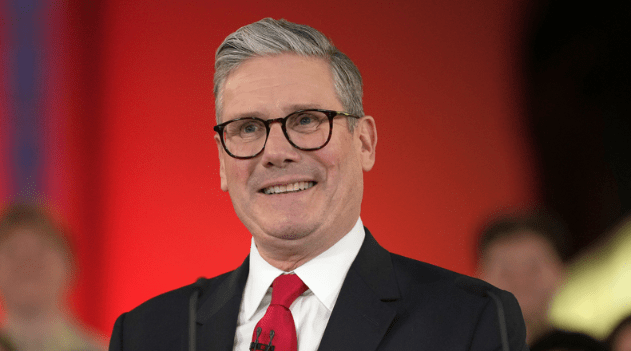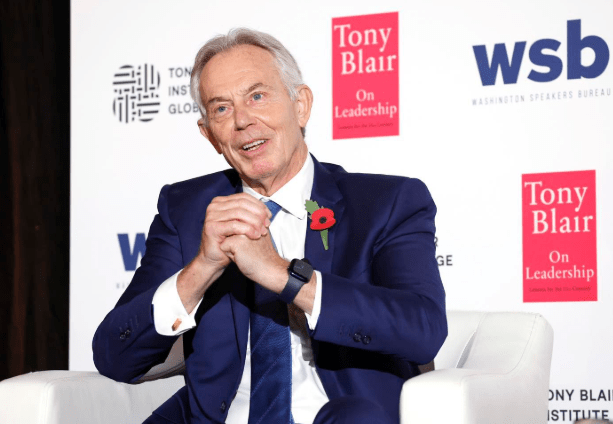In a stark warning, former Prime Minister Sir Tony Blair has declared that the West’s approach to combating climate change is “failing” — and demands a radical overhaul to win public trust and drive real action.
Blair’s intervention comes at a crucial time, delivering a serious blow to the current Labour government’s climate agenda, especially to Energy Secretary Ed Miliband’s drive towards renewables.
Writing the foreword for his think tank’s latest paper, The Climate Paradox: Why We Need to Reset Action on Climate Change, Blair warned of a growing gap between political rhetoric and public reality.
Voters, he said, are “being asked to make financial sacrifices and changes in lifestyle when they know that their impact on global emissions is minimal.” The timing is politically sensitive.
With local elections looming in just 48 hours, Sir Keir Starmer’s administration faces its first significant electoral challenge since taking office.

Blair endorsed the new paper, authored by Lindy Fursman, Director of Climate and Energy Policy at the Tony Blair Institute (TBI). It calls for the dismantling of the COP conference process, arguing it is too slow to deliver the necessary change.
“The process will not deliver change at the speed required,” Blair stated, suggesting that a handful of major countries, through decisive technological and financial leadership, could achieve far more than endless global summits.
He proposed a “new cooperative approach” focused on scaling real-world solutions rather than endless talking.
Blair did not hold back. He noted that while climate activism has raised awareness, current policy strategies have drifted far from political and economic reality.
“Activists have shifted the political centre of gravity on climate,” he acknowledged, but warned: “The movement now needs a public mandate – attainable only through a shift from protest to pragmatic policy.”
Today’s leaders, he said, “know that the debate has become irrational” but are “terrified of saying so, for fear of being accused of being ‘climate deniers.'”
Blair cited global trends that expose the futility of current strategies:
- Fossil fuel use is forecast to rise until at least 2030.
- Airline travel is expected to double within two decades.
- By 2030, almost two-thirds of emissions will originate from China, India, and Southeast Asia.
These “inconvenient facts” mean that “any strategy based on either ‘phasing out’ fossil fuels in the short term or limiting consumption is a strategy doomed to fail,” he warned.
The TBI paper advocates a dramatic shift in focus. Rather than trying to eliminate emissions through renewables alone, it calls for huge investments in technologies like carbon capture and direct air capture.
It also urges governments to harness the power of technology, especially AI. Smarter tech could dramatically improve energy efficiency, revolutionise grid management, and slash energy demands, cutting bills and emissions in one stroke.
Further proposals include:
- Heavy investment in new energy frontiers, such as next-generation nuclear and fusion technology.
- Fast-tracking the integration of small modular reactors into national energy strategies.
- Scaling up nature-based solutions like reforestation and carbon-smart agriculture.
Nature and science, the paper argues, must work hand in hand. “Nature is one of our best allies in this fight,” the TBI insists, calling for smart science and innovation to back it.
Sir Tony Blair’s message is clear: without a fundamental rethink of climate policy, including tearing down outdated processes and embracing bold technological solutions, efforts to tackle global warming will falter.
As the Labour government faces its first major electoral test, Blair’s intervention could not be more pointed — or more urgent. With local elections fast approaching and the key voter ID deadline for England’s local elections 2025 already in place, the political landscape is under intense scrutiny.






